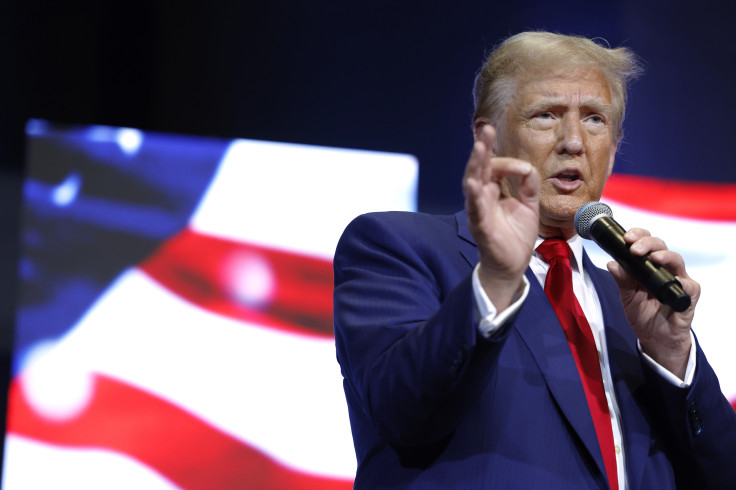
SEATTLE - For months, former President Donald Trump has said that, in case of winning this year's presidential election, he would impose tariffs on key U.S. trade partners such as Mexico. With such economic policy in place, analysts and experts believe the proposed tariffs would have a more consequential impact on the lives of the American people than it would on the companies being taxed.
But experts analyzing Trump's tariff idea are not thrilled, as they say such decisions would push U.S. import duty rates back up to levels not seen in generations, as well as draw retaliation from trade partners and drastically reorder supply chains.
During his last day of campaign before the election, Trump visited North Carolina, a battleground state in this year's elections. While addressing the crowd, the Republican candidate continued his discourse around taxing companies importing goods into the U.S., threatening to impose a tariff of up to 25 percent on all imports from Mexico unless the Mexican government reduces the flow of illegal immigration coming across the border.
By placing tariffs on key trade partners such as Mexico and China, a new report says that U.S. shoppers could lose up to $78 billion in annual spending power annually if these measures are implemented. According to a study from the National Retail Federation (NRF), the proposed tariffs would impact consumer product categories such as apparel, toys, furniture, appliances, footwear and many other items where China is a major supplier.
Last year, Trump started floating the idea of imposing a 10% universal tariff that would "automatically" tax all countries selling goods to the U.S.. "When companies come in and they dump their products in the United States, they should pay, automatically, let's say a 10% tax ... I do like the 10% for everybody," Trump said in an interview with Fox Business in August of last year.
Economists on both sides of the political spectrum previously mentioned Trump's tariff proposal could prove to be extremely dangerous. Adam Posen, president of the Peterson Institute for International Economics, called Trump's proposal a "lunacy."
Posen argues that, by imposing new tariffs, Trump would be "depriving American families of an enormous amount of choice, making their lives much more expensive, and putting millions of people out of work."
But despite the warning signs, Trump continues to hold his stand on the matter, claiming that instead of driving trade partners away, the tariffs would cause more companies to do business inside the U.S.
"We're being invaded by Mexico. But now we have a new president of Mexico. Supposed to — a very nice woman, they say. I haven't met her. And I'm going to inform her on day one or sooner that if they don't stop this onslaught of criminals and drugs coming into our country, I'm going to immediately impose a 25 percent tariff on everything they send into the United States of America," Trump said at the rally in North Carolina.
According to the Office of the U.S. Trade Representative, trade between the U.S. and Mexico totaled an estimated $855 billion in 2022, nearly $500 billion of which was goods imported from Mexico.
But at the end of the day, experts say that the ones affected by the tariffs end up being consumers. If the import tariff is implemented, it would further worsen the impact on low-income families, as the tax paid by the U.S. importer ultimately comes out of consumers' pockets through higher prices.
"Retailers rely heavily on imported products and manufacturing components so that they can offer their customers a variety of products at affordable prices," said Jonathan Gold, NRF's vice president of supply chain and customs policy.
© 2025 Latin Times. All rights reserved. Do not reproduce without permission.







